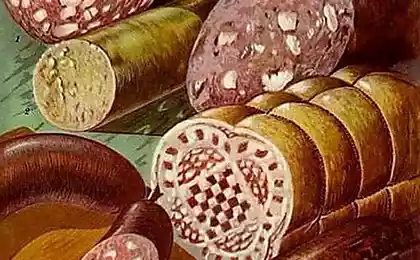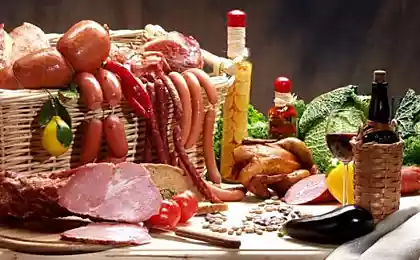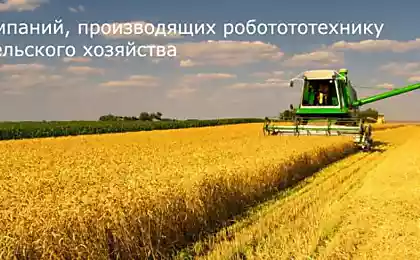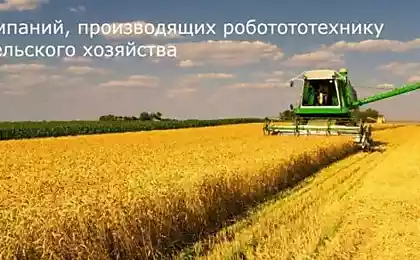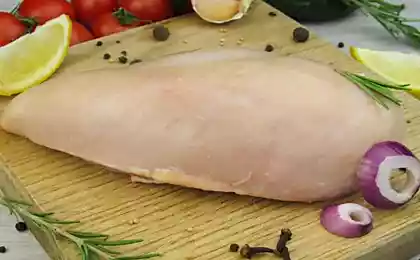2259
Soviet sausage
I, like probably many sausage taste associated with childhood. I remember how after working mother brought a bundle of paper with "Doctor" - the fragrance wafting throughout the apartment. In the refrigerator for a long time she do not lie, knead the same evening. Oh, it was time! "What is special about this vaunted sausage 2, 20?" - Surprised young people now, not finding the Soviet era. Nothing special, nothing to speak of - just a sausage made of meat! ...
It's no secret that any product in Soviet society, especially if I may say so, in the late Soviet period, did not have a social and cultural values, like a sausage.
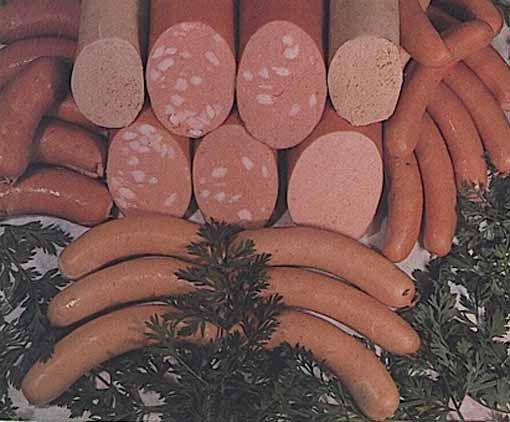
It was not just a product, but a symbol of the Soviet system. Sign of prosperity in the years of shortages, and the most frequent cause of an occasion for nostalgia several generations of immigrants, a full-fledged theme for the various forms of folklore and even literary works.
We knew from childhood: our most delicious sausage! In a sense, the Soviet sausage, paradoxical nature of which was, at first, in a strange inconsistency cost and quality when the second much superior to the first, and secondly, in the affordability and inaccessibility to ... how to acquire, because of the product itself that neither there everyday use had to travel to other cities and stand kilometer queue.
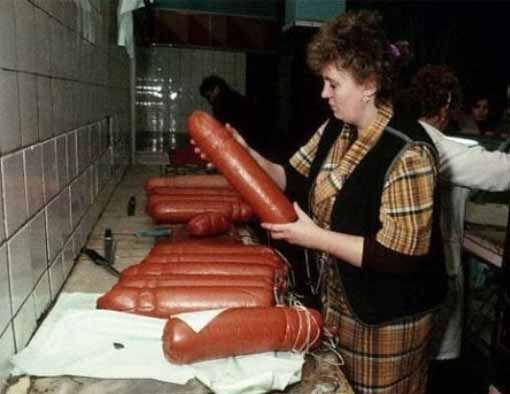
Cheap food needed hungry Russian 30s. Order to carry out the party and government Anastas Mikoyan went to Chicago - there was the most advanced at that time, the production of sausages. Soviet officials looked at the local meat processing plant and ordered exactly the same. However, the recipe for sausage developed already in Moscow.
The revival of Russian sausages was held, when the Soviet government had already firmly established in Russia. Namely - in April 1936 the People's Commissar of food industry, Anastas Mikoyan, signed the order for the production of new meat products: sausages PhD, Amateur, Tea, veal and Krakow, milk and sausages Hunting sausages.
Some of the formulations was developed from scratch, others recovered from previous times. It is noteworthy that the doctor's sausage was specially created for "patients who have poor health as a result of the Civil War and the king's despotism».
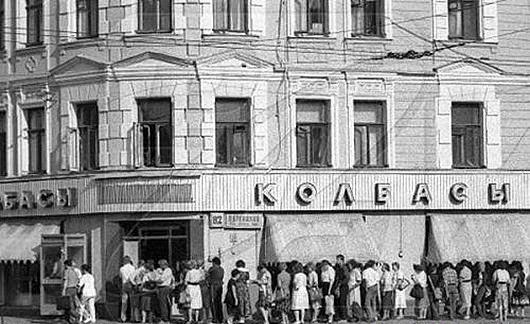
Recipe "amendment of public health" was verified in detail: 100 kg sausage containing 25 kg of beef premium, 70 kg bold pork, eggs 3 kg and 2 kg of cow's milk.
For 70 years, guests on the sausage changed, and more than once I tell and the war, and the Soviet deficit. The first Soviet sausage varieties differ in the quality of the meat. In the "amateur" and "Doctor" it was top grade, but somewhere - the first and even second.
In the same period were built more than 20 large meat processing plants - in Moscow, Leningrad, Semipalatinsk, Engels, Dnepropetrovsk, Sverdlovsk, and other cities, equipped with the most modern equipment of the time. It is not in vain A. Mikoyan went to get acquainted with the sausage production in the United States!
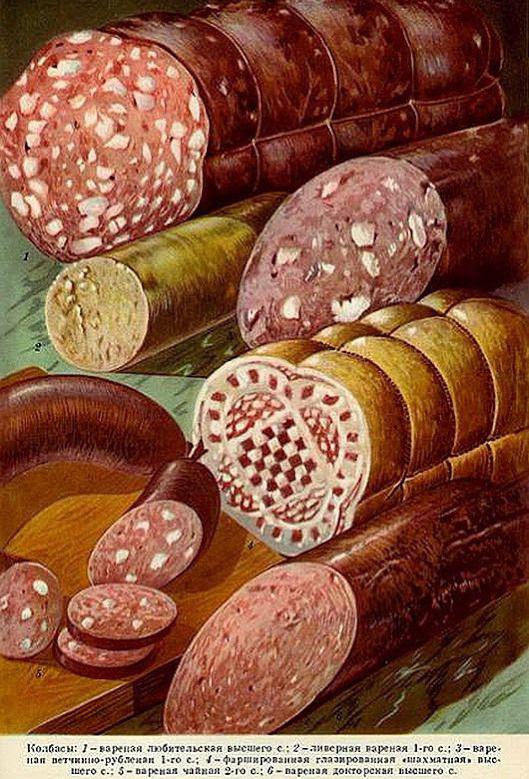
During the war, the total losses of the meat processing industry exceeded 1 billion. Rubles. Many meat-packing plants were partially or completely destroyed. Suffered and resource base. On the occupied territory of the USSR by the German army was removed, scored 17 million head of cattle, 7 million horses, 20 million pigs, 27 million sheep and goats.
But has taken unprecedented measures to ensure the conservation of livestock and the army and the rear meat products. On the western territories were evacuated millions of head of cattle and sheep and horses.
In accordance with the requirements of wartime has been restructured range towards release for shipment of products, little prone to damage, such as corned beef, smoked and canned and smoked and smoked sausages.
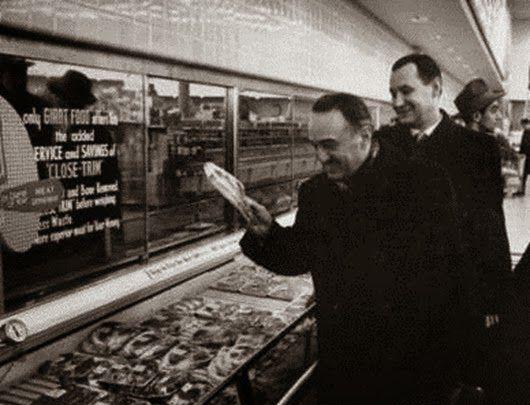
For civilians, many enterprises established production of bone broths and liver sausage. In the difficult war years in an atmosphere of an acute shortage of raw materials, particularly in the besieged Leningrad, seek opportunities to use all kinds of raw meat substitutes, such as glycerol, albumin, gelatin, agar-agar, edible herbs and even the tops of vegetable crops.
When in January 1942 from the bottom of Lake Ladoga raised submerged barge with peas on a sausage factory in the shortest possible time the technology was developed generation of pea sausage with onions, cereals and flour. But it was only a forced concession wartime. People worked for 12-14 hours, exceeding the plan and providing the army and the rear food and, of course, they won!
Since the "birth" until the end of the 50s the main recipe "Doctor" remained virtually unchanged. In the 60s began experimenting with fattening animals. This has affected the sausage she became smell that fish, then chicken, and sometimes a chemical plant, producing fertilizers.
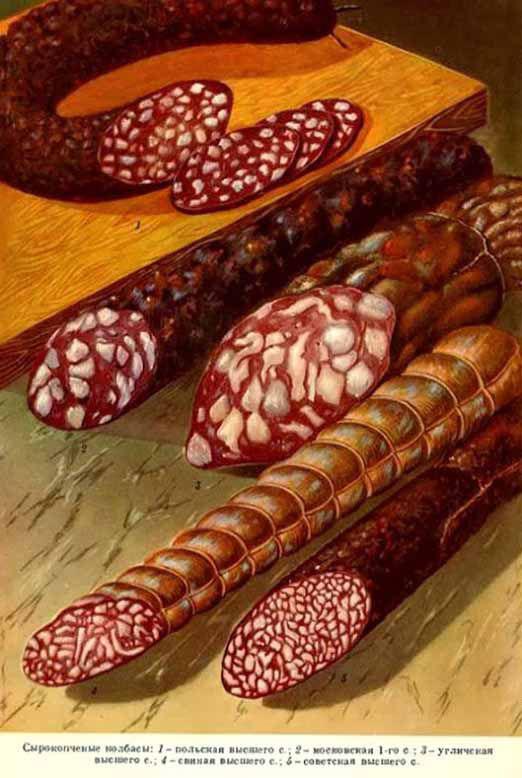
During the post-war restoration of the economy followed by the era of technical re-meat-packing plants, which coincided with the deterioration of productivity and insufficient growth of livestock. Reduce the quality of animal Plenum of the Party Central Committee in 1965 described previously pursued a policy in the field of animal.
During Brezhnev began to decline in meat production in the USSR. Scientists have begun to develop technology combined meat: sausage appeared in soy protein, milk protein, the so-called blood products and even "indigestible" things like kazenat sodium.
To legitimize the presence of "Doctor", and other sausages "cardboard", new state standards, taking into account all these supplements. For example, boiled sausage called "breakfast" consisted of officially kazenata sodium, wheat flour and potato starch.
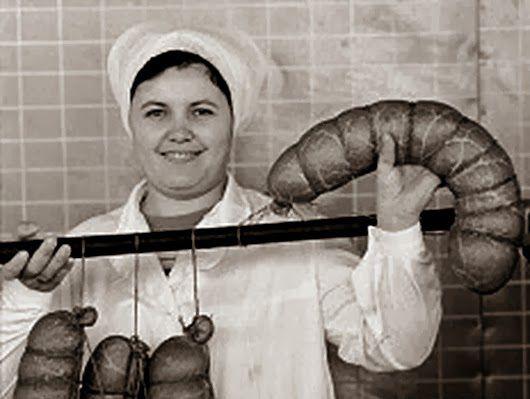
Inadequate funding of livestock associated with the arms race, and other problems in agriculture have led to a shortage of raw materials for food production. However, only in the 70s came the first change in the formulation of sausages. As a result of the unprecedented drought in 1972 due to lack of forage had to put under the knife hundreds of thousands of head of cattle.
In 1974, at a party for the first time introduced some relief. In minced meat allowed to add up to 2% of the starch or flour substitutes or animal protein - the milk or blood. None of sausage consumers could not feel any change. A nedolozhennye 2% of meat in the country were given a huge savings. Besides kozenaty (substitutes) in comparison with the price of a kilogram of beef cost mere pennies.
In short, allowing additives, we are in some ways even made another step towards communism: reduced the price per kilo "PhD" with 2, 3 rubles. 2, 2 rubles.
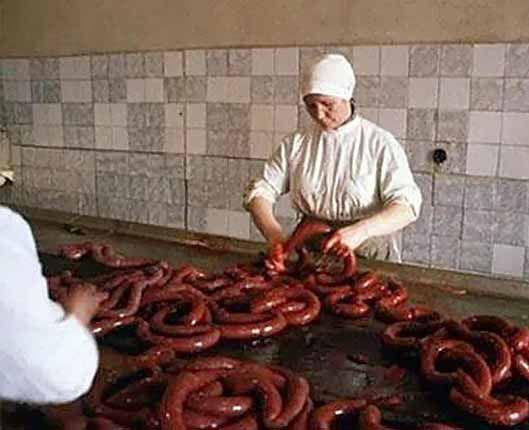
However, temporary difficulties with raw materials were constant. There was such a thing as a deficit when for sausages lined kilometer queue, there was a Soviet phenomenon - the so-called "sausage" trains (even many people remember this anecdote: What is it? A long, green and smells like sausage? - Moscow train).
Ably supported by the state to demand the creation of a mythical sausage areola of mystery and legends, based primarily on the original recipe cooking Soviet sausage. Not knowing the marketing planned economy sometimes create real masterpieces of advertising as a result of which any sausage just sweep the shelves.
So saying that the market will soon be available sausage "Employee of the Politburo," on the cut which was visible from the fat profile of Lenin. Or sausage "Ostankino" made from the remains of the enemies of socialism. Although there were those who thought the author of her prescription Simonov. Remember, in the "Battle on the Ice": "Already mingled people, horses ...»
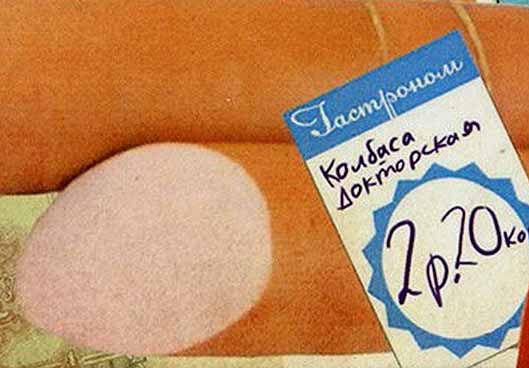
The deficit was replaced by a system of coupons for basic food commodities, then - the total deficit and, in the end - the victory of market relations and the collapse of the Soviet Union.
It was then flooded and the people of impoverished Russia in wealthier countries for good life, full of stalls, the good sausage. For domestic sausage was accused of all sins - and toilet paper in it, supposedly, add buttons and / nails human / rat tails and other horrors in it are, and generally do not know from what.
A flood of Russian imported sausages. However, it was a little strange, unusual, and even - shudder to think - quite tasteless, anyway, from her our customers expect more.
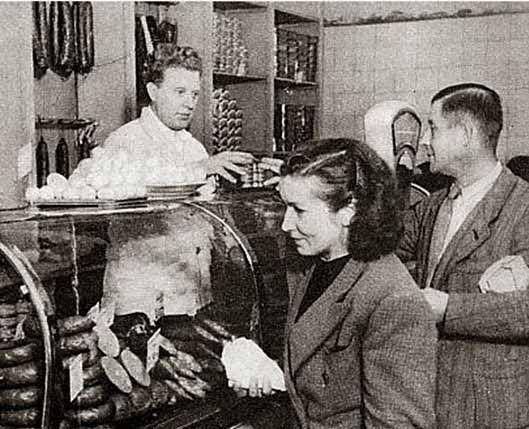
As it turned out, high technology allow the use in the sausage is not the best raw materials. Moreover, the West in general, even the first grade meat is not accepted to let the sausage, it is only on sale. Well, is not compatible with quality raw materials market relations! And just foreigners is very appreciated our sausages, giving them their due when visiting the USSR.
And no wonder. After all, even the most popular and quite affordable cooked sausage Amateur and Doctoral consisted of meat, and the highest grade. Ie 100 kg of cooked sausage Amateur Extra Class supposed trimmed beef premium of 35 kg, pork trimmed lean 40kg, bacon spinal - 25 kg.
Similarly, 100 kg 25 kg Doctoral went higher grade beef, pork bold 70 kg, 3 kg of egg and 2 kg of cow's milk. Sausages with such a composition were indeed unique in quality and nutritional value! Unless, of course, part of the raw materials did not go "left» ...
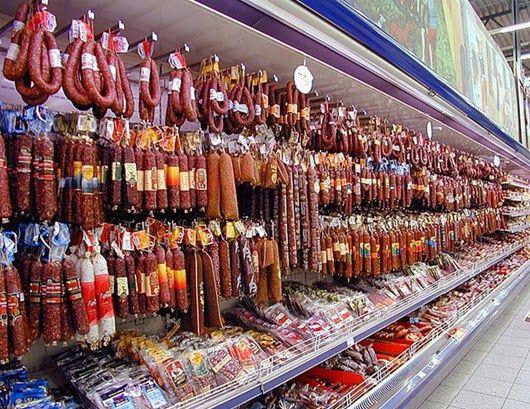
According to statistics, up to 1990 in the USSR per person accounted for more than 40 kg of sausage per year. A paradox! In the Soviet Union, the world leader in the production of sausages per capita, it never was. Sometimes the aforementioned instantly swept away from the shelves, sometimes sellers held back under threat of dismissal.
And after a while, when syncope in full foreign counters ended, the notion of "sausage emigration" was replaced by the concept of "sausage nostalgia." And there were stories like the alleged forged some of the former compatriots production of "ever" sausage "thereby" recipes. And they had, it would seem, an unprecedented success in the West, especially among former compatriots.
And those who are such a sausage still did not get lucky Russian relatives and friends of the Russian domestic sausage as a gift. However, one - from childhood - Soviet sausage was not returned, became different taste and price. Or treated so by the time affected by the tsarist regime and sausage as the remedy has lost relevance, and therefore disappeared?
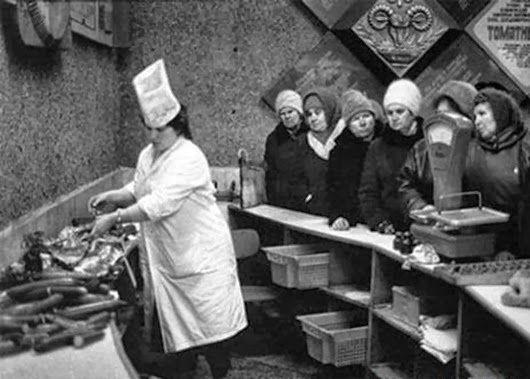
However, nostalgic for the Soviet era sausages not only immigrants but also the residents of Russia. And buy, as you know, most of the names of Soviet brands - doctor, amateur, Krakow, Moscow and, of course, Servelat.
Affordability sausages reflected both the idea of equality, and the secondary role of the peasantry, whose work is so modest pay. And disappeared cheap sausage meat of high quality at the same time with the disappearance of the Soviet Union.
However, not entirely disappeared. After all, modern designed GOST sausage, preserving continuity with the former, Soviet. And although "the very" sausage and there can not be, because everything changes - the raw material, technology, packaging, Soviet brands survive and thrive. But today, to buy Amateur with Moscow does not have to go to other cities or take their turn at six o'clock in the morning.
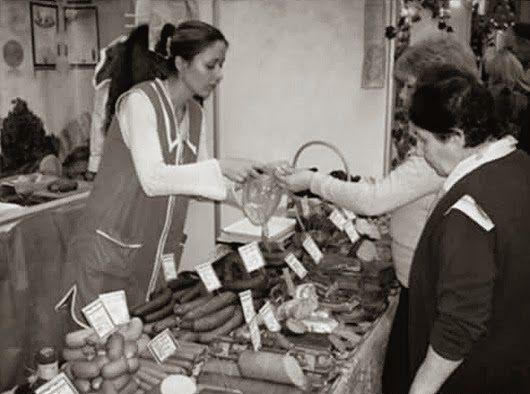
Today, the majority of Russians sausage - meat product number one, although it's more a snack than a meal. "Doctor" and remains one of the most beloved and popular. Many enterprises produce sausage, and both guests and TU - technical specifications developed in this enterprise. Therefore, on the shelves you can see several kinds of "Doctor", and any other sausages in different shells and at different prices.
Today, technical specifications (TU) are approved by the Council of Ministers is not Russia, but by now, which works on the principle that less meat - more substitutes. In terms of quality of products most dashing time considered the beginning of the 90s, when the competition for markets was not a life-and-death. Sometimes, when we ate sausage ... all without sausage, ie without meat! Manufacturers do fat emulsion, added "taste" - and ready.
According to the great proletarian holidays in a "sausage" added chicken farsh.Nynche situation is not particularly improved - sausage the second grade of 70% (!) Consist of soy and various chemical additives for meat not related. Soy is very good moisture absorption, per 1 kg of the powder requires 5-6 liters of water.
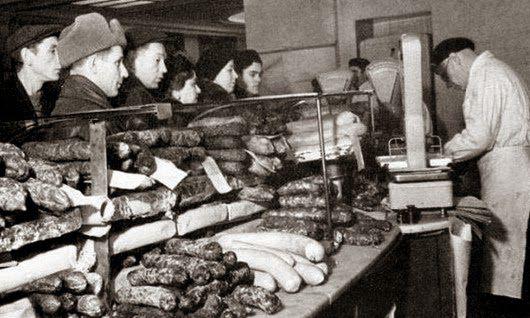
We assume that if a 100 kg individual sausages using 10 kg of soybean means there is also up to 60 liters of water. Here you have 70 kg of 100 is not meat! As widely used carrageenan: vegetable protein based on seaweed. He is very moisture capacity, when mixed with water in the final product retains density product and its solidity.
Soviet sausage will always remember with nostalgia. Grandparents - that in the days of their youth, she was present, from meat. Their children - how difficult it was to get it in principle, but if you managed - that sandwich becomes a holiday. And as merchandised coupons. And today's young people have already got used to come to the store and choose a sausage according to your taste and budget.
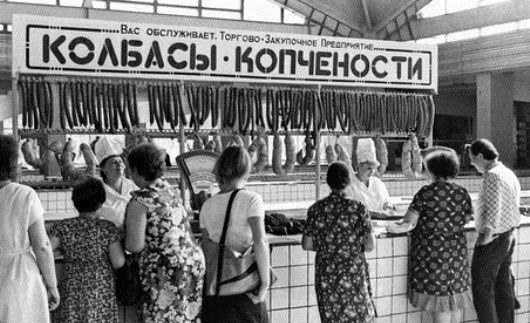
It's no secret that any product in Soviet society, especially if I may say so, in the late Soviet period, did not have a social and cultural values, like a sausage.

It was not just a product, but a symbol of the Soviet system. Sign of prosperity in the years of shortages, and the most frequent cause of an occasion for nostalgia several generations of immigrants, a full-fledged theme for the various forms of folklore and even literary works.
We knew from childhood: our most delicious sausage! In a sense, the Soviet sausage, paradoxical nature of which was, at first, in a strange inconsistency cost and quality when the second much superior to the first, and secondly, in the affordability and inaccessibility to ... how to acquire, because of the product itself that neither there everyday use had to travel to other cities and stand kilometer queue.

Cheap food needed hungry Russian 30s. Order to carry out the party and government Anastas Mikoyan went to Chicago - there was the most advanced at that time, the production of sausages. Soviet officials looked at the local meat processing plant and ordered exactly the same. However, the recipe for sausage developed already in Moscow.
The revival of Russian sausages was held, when the Soviet government had already firmly established in Russia. Namely - in April 1936 the People's Commissar of food industry, Anastas Mikoyan, signed the order for the production of new meat products: sausages PhD, Amateur, Tea, veal and Krakow, milk and sausages Hunting sausages.
Some of the formulations was developed from scratch, others recovered from previous times. It is noteworthy that the doctor's sausage was specially created for "patients who have poor health as a result of the Civil War and the king's despotism».

Recipe "amendment of public health" was verified in detail: 100 kg sausage containing 25 kg of beef premium, 70 kg bold pork, eggs 3 kg and 2 kg of cow's milk.
For 70 years, guests on the sausage changed, and more than once I tell and the war, and the Soviet deficit. The first Soviet sausage varieties differ in the quality of the meat. In the "amateur" and "Doctor" it was top grade, but somewhere - the first and even second.
In the same period were built more than 20 large meat processing plants - in Moscow, Leningrad, Semipalatinsk, Engels, Dnepropetrovsk, Sverdlovsk, and other cities, equipped with the most modern equipment of the time. It is not in vain A. Mikoyan went to get acquainted with the sausage production in the United States!

During the war, the total losses of the meat processing industry exceeded 1 billion. Rubles. Many meat-packing plants were partially or completely destroyed. Suffered and resource base. On the occupied territory of the USSR by the German army was removed, scored 17 million head of cattle, 7 million horses, 20 million pigs, 27 million sheep and goats.
But has taken unprecedented measures to ensure the conservation of livestock and the army and the rear meat products. On the western territories were evacuated millions of head of cattle and sheep and horses.
In accordance with the requirements of wartime has been restructured range towards release for shipment of products, little prone to damage, such as corned beef, smoked and canned and smoked and smoked sausages.

For civilians, many enterprises established production of bone broths and liver sausage. In the difficult war years in an atmosphere of an acute shortage of raw materials, particularly in the besieged Leningrad, seek opportunities to use all kinds of raw meat substitutes, such as glycerol, albumin, gelatin, agar-agar, edible herbs and even the tops of vegetable crops.
When in January 1942 from the bottom of Lake Ladoga raised submerged barge with peas on a sausage factory in the shortest possible time the technology was developed generation of pea sausage with onions, cereals and flour. But it was only a forced concession wartime. People worked for 12-14 hours, exceeding the plan and providing the army and the rear food and, of course, they won!
Since the "birth" until the end of the 50s the main recipe "Doctor" remained virtually unchanged. In the 60s began experimenting with fattening animals. This has affected the sausage she became smell that fish, then chicken, and sometimes a chemical plant, producing fertilizers.

During the post-war restoration of the economy followed by the era of technical re-meat-packing plants, which coincided with the deterioration of productivity and insufficient growth of livestock. Reduce the quality of animal Plenum of the Party Central Committee in 1965 described previously pursued a policy in the field of animal.
During Brezhnev began to decline in meat production in the USSR. Scientists have begun to develop technology combined meat: sausage appeared in soy protein, milk protein, the so-called blood products and even "indigestible" things like kazenat sodium.
To legitimize the presence of "Doctor", and other sausages "cardboard", new state standards, taking into account all these supplements. For example, boiled sausage called "breakfast" consisted of officially kazenata sodium, wheat flour and potato starch.

Inadequate funding of livestock associated with the arms race, and other problems in agriculture have led to a shortage of raw materials for food production. However, only in the 70s came the first change in the formulation of sausages. As a result of the unprecedented drought in 1972 due to lack of forage had to put under the knife hundreds of thousands of head of cattle.
In 1974, at a party for the first time introduced some relief. In minced meat allowed to add up to 2% of the starch or flour substitutes or animal protein - the milk or blood. None of sausage consumers could not feel any change. A nedolozhennye 2% of meat in the country were given a huge savings. Besides kozenaty (substitutes) in comparison with the price of a kilogram of beef cost mere pennies.
In short, allowing additives, we are in some ways even made another step towards communism: reduced the price per kilo "PhD" with 2, 3 rubles. 2, 2 rubles.

However, temporary difficulties with raw materials were constant. There was such a thing as a deficit when for sausages lined kilometer queue, there was a Soviet phenomenon - the so-called "sausage" trains (even many people remember this anecdote: What is it? A long, green and smells like sausage? - Moscow train).
Ably supported by the state to demand the creation of a mythical sausage areola of mystery and legends, based primarily on the original recipe cooking Soviet sausage. Not knowing the marketing planned economy sometimes create real masterpieces of advertising as a result of which any sausage just sweep the shelves.
So saying that the market will soon be available sausage "Employee of the Politburo," on the cut which was visible from the fat profile of Lenin. Or sausage "Ostankino" made from the remains of the enemies of socialism. Although there were those who thought the author of her prescription Simonov. Remember, in the "Battle on the Ice": "Already mingled people, horses ...»

The deficit was replaced by a system of coupons for basic food commodities, then - the total deficit and, in the end - the victory of market relations and the collapse of the Soviet Union.
It was then flooded and the people of impoverished Russia in wealthier countries for good life, full of stalls, the good sausage. For domestic sausage was accused of all sins - and toilet paper in it, supposedly, add buttons and / nails human / rat tails and other horrors in it are, and generally do not know from what.
A flood of Russian imported sausages. However, it was a little strange, unusual, and even - shudder to think - quite tasteless, anyway, from her our customers expect more.

As it turned out, high technology allow the use in the sausage is not the best raw materials. Moreover, the West in general, even the first grade meat is not accepted to let the sausage, it is only on sale. Well, is not compatible with quality raw materials market relations! And just foreigners is very appreciated our sausages, giving them their due when visiting the USSR.
And no wonder. After all, even the most popular and quite affordable cooked sausage Amateur and Doctoral consisted of meat, and the highest grade. Ie 100 kg of cooked sausage Amateur Extra Class supposed trimmed beef premium of 35 kg, pork trimmed lean 40kg, bacon spinal - 25 kg.
Similarly, 100 kg 25 kg Doctoral went higher grade beef, pork bold 70 kg, 3 kg of egg and 2 kg of cow's milk. Sausages with such a composition were indeed unique in quality and nutritional value! Unless, of course, part of the raw materials did not go "left» ...

According to statistics, up to 1990 in the USSR per person accounted for more than 40 kg of sausage per year. A paradox! In the Soviet Union, the world leader in the production of sausages per capita, it never was. Sometimes the aforementioned instantly swept away from the shelves, sometimes sellers held back under threat of dismissal.
And after a while, when syncope in full foreign counters ended, the notion of "sausage emigration" was replaced by the concept of "sausage nostalgia." And there were stories like the alleged forged some of the former compatriots production of "ever" sausage "thereby" recipes. And they had, it would seem, an unprecedented success in the West, especially among former compatriots.
And those who are such a sausage still did not get lucky Russian relatives and friends of the Russian domestic sausage as a gift. However, one - from childhood - Soviet sausage was not returned, became different taste and price. Or treated so by the time affected by the tsarist regime and sausage as the remedy has lost relevance, and therefore disappeared?

However, nostalgic for the Soviet era sausages not only immigrants but also the residents of Russia. And buy, as you know, most of the names of Soviet brands - doctor, amateur, Krakow, Moscow and, of course, Servelat.
Affordability sausages reflected both the idea of equality, and the secondary role of the peasantry, whose work is so modest pay. And disappeared cheap sausage meat of high quality at the same time with the disappearance of the Soviet Union.
However, not entirely disappeared. After all, modern designed GOST sausage, preserving continuity with the former, Soviet. And although "the very" sausage and there can not be, because everything changes - the raw material, technology, packaging, Soviet brands survive and thrive. But today, to buy Amateur with Moscow does not have to go to other cities or take their turn at six o'clock in the morning.

Today, the majority of Russians sausage - meat product number one, although it's more a snack than a meal. "Doctor" and remains one of the most beloved and popular. Many enterprises produce sausage, and both guests and TU - technical specifications developed in this enterprise. Therefore, on the shelves you can see several kinds of "Doctor", and any other sausages in different shells and at different prices.
Today, technical specifications (TU) are approved by the Council of Ministers is not Russia, but by now, which works on the principle that less meat - more substitutes. In terms of quality of products most dashing time considered the beginning of the 90s, when the competition for markets was not a life-and-death. Sometimes, when we ate sausage ... all without sausage, ie without meat! Manufacturers do fat emulsion, added "taste" - and ready.
According to the great proletarian holidays in a "sausage" added chicken farsh.Nynche situation is not particularly improved - sausage the second grade of 70% (!) Consist of soy and various chemical additives for meat not related. Soy is very good moisture absorption, per 1 kg of the powder requires 5-6 liters of water.

We assume that if a 100 kg individual sausages using 10 kg of soybean means there is also up to 60 liters of water. Here you have 70 kg of 100 is not meat! As widely used carrageenan: vegetable protein based on seaweed. He is very moisture capacity, when mixed with water in the final product retains density product and its solidity.
Soviet sausage will always remember with nostalgia. Grandparents - that in the days of their youth, she was present, from meat. Their children - how difficult it was to get it in principle, but if you managed - that sandwich becomes a holiday. And as merchandised coupons. And today's young people have already got used to come to the store and choose a sausage according to your taste and budget.


